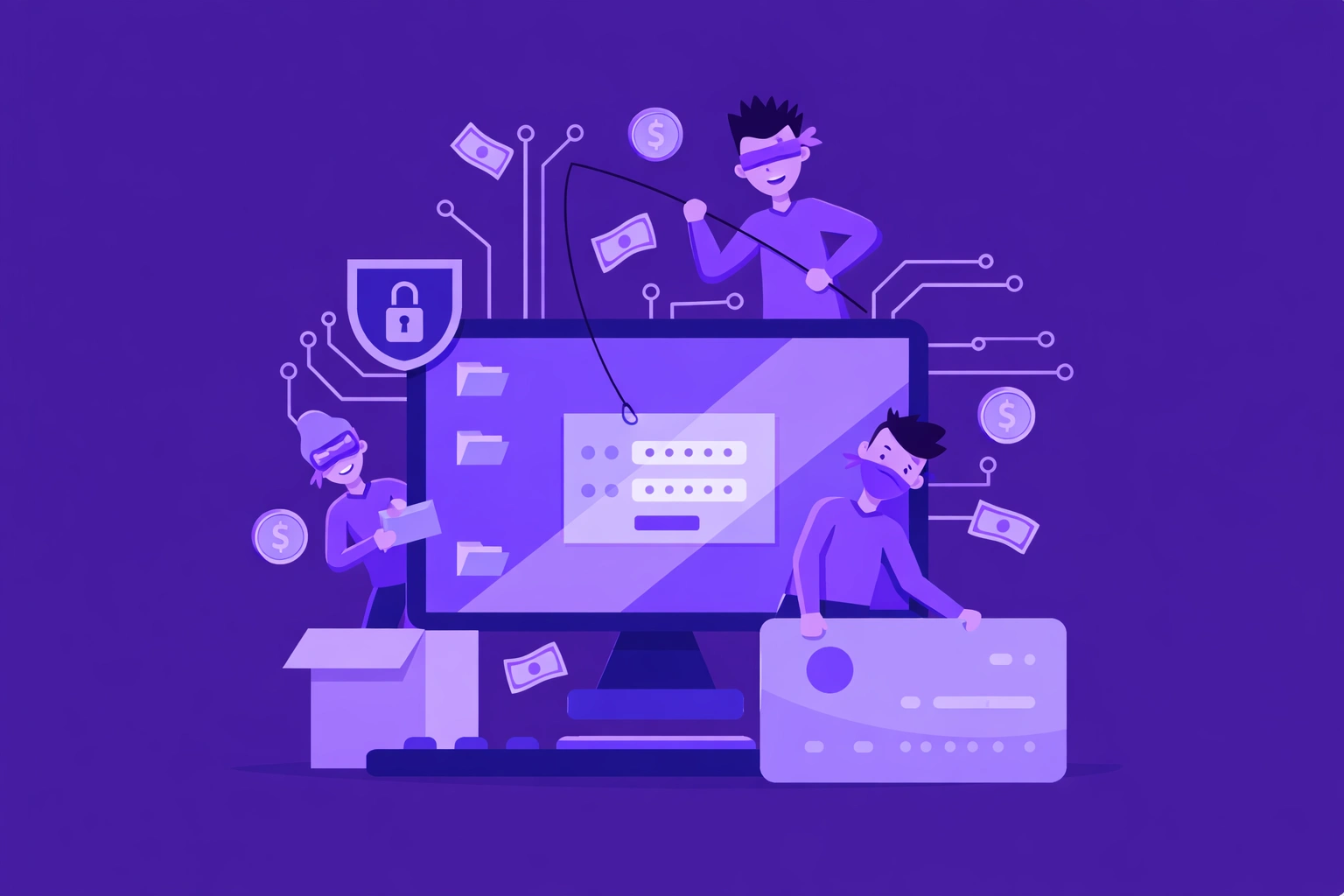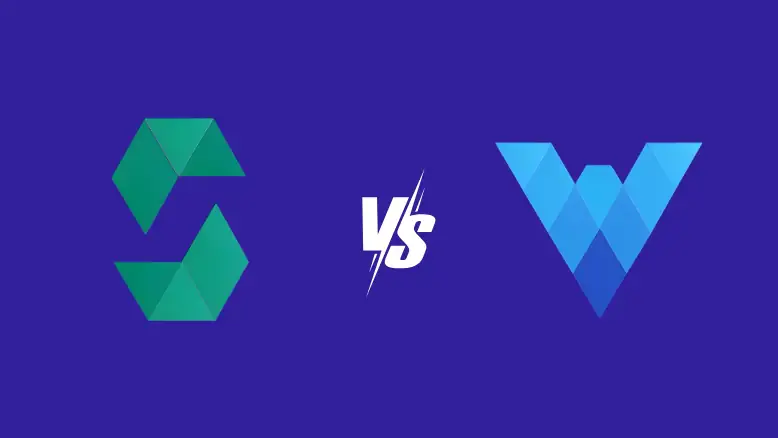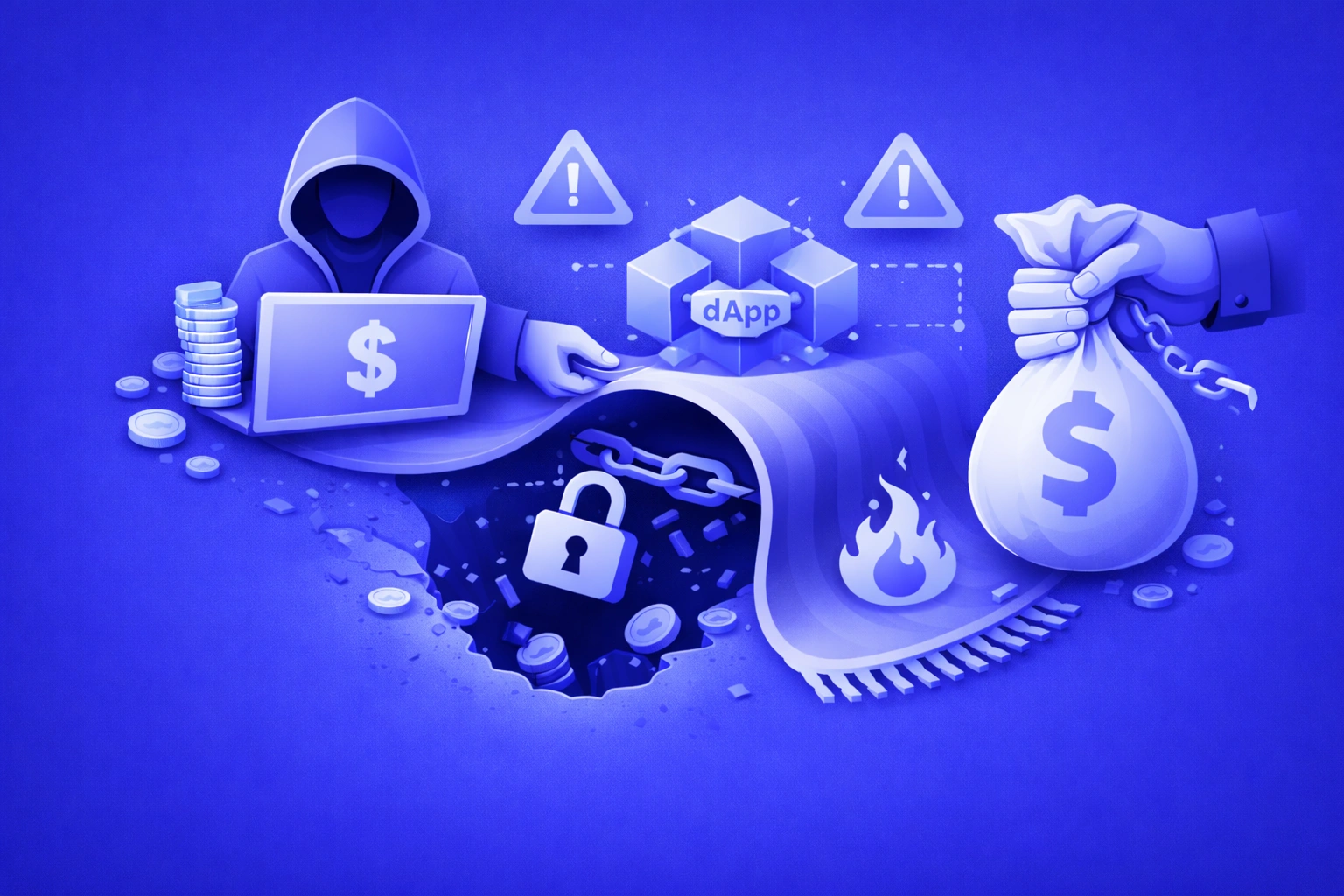Key Takeaways
- Permissionless DEX platforms enable anyone with a crypto wallet to trade without identity verification, account approval, or centralized gatekeepers.
- Smart contract based trading replaces traditional intermediaries, executing transactions automatically through audited code on blockchain networks.
- Self-custodial crypto trading ensures users maintain full control of private keys and assets throughout the entire trading process.
- Automated market maker protocols power liquidity pools in DEX, enabling decentralized trading without intermediaries or order books.
- No KYC DEX access provides privacy benefits while enabling global participation from users in USA, UK, UAE, Canada, and worldwide.
- Trustless trading mechanisms ensure transaction execution depends on code verification rather than trusting centralized counterparties.
- Censorship-resistant trading protects users from arbitrary account freezes, geographic restrictions, or politically motivated access denials.
- Risks of permissionless decentralized exchanges include smart contract vulnerabilities, impermanent loss, and exposure to malicious tokens.
- The difference between permissionless and permissioned DEX centers on open access versus controlled entry requiring approval or verification.
- Permissionless DeFi continues expanding use cases beyond simple swaps into lending, derivatives, and complex financial instruments.
What Does Permissionless Mean in a DEX?
Permissionless in DEX represents a fundamental philosophy where access to trading services requires no approval from any central authority.[1] Unlike traditional financial systems that demand identity verification, credit checks, or institutional endorsements, a permissionless decentralized exchange welcomes any participant who possesses a compatible cryptocurrency wallet. This open architecture removes gatekeepers from the financial equation, enabling truly democratic access to trading infrastructure across global markets.
The permissionless model means that whether you are a retail trader in the USA, an institutional investor in the UK, a tech entrepreneur in the UAE, or a DeFi enthusiast in Canada, you face identical entry requirements: simply connect your wallet. There are no forms to complete, no waiting periods for account approval, and no arbitrary restrictions based on geography, net worth, or trading history. The smart contracts governing the exchange treat all participants equally, executing trades based purely on mathematical rules encoded in the protocol.
Our agency has spent over eight years helping clients understand and navigate the permissionless trading landscape. What does permissionless mean in DEX from a practical standpoint? It means financial sovereignty where users control their assets, choose their trading pairs, and execute transactions without seeking permission from intermediaries. This represents a paradigm shift from traditional finance where institutions decide who can participate and under what conditions they may trade.
How Permissionless DEXs Differ from Centralized Exchanges?
Centralized exchanges operate as traditional businesses requiring user registration, identity verification through KYC procedures, and custody transfer of assets to exchange-controlled wallets. Users must trust these platforms to secure funds, execute trades fairly, and maintain solvency. In contrast, permissionless DEX platforms eliminate these requirements entirely, enabling wallet-to-wallet trading where assets never leave user custody until the moment of swap execution through smart contracts.
The operational differences extend to market mechanics. Centralized exchanges typically use order book models where buy and sell orders match through proprietary systems. How permissionless DEX works instead involves automated market maker protocols that calculate prices algorithmically based on liquidity pool ratios. This on-chain trading mechanism ensures complete transparency where anyone can verify pricing calculations and trading activity directly on the blockchain.
Perhaps most significantly, permissionless decentralized exchange platforms cannot arbitrarily freeze accounts, restrict withdrawals, or deny service based on corporate policies or government pressure. The censorship-resistant trading nature of these protocols means that as long as the underlying blockchain network functions, users retain access to their trading capabilities regardless of external circumstances or institutional decisions.
Core Principles Behind Permissionless Decentralized Trading
Open Access
No barriers to entry exist beyond owning a compatible wallet. Anyone globally can participate without approval processes, identity checks, or minimum balance requirements that characterize traditional financial gatekeeping systems.
Self-Custody
Self-custodial crypto trading ensures users maintain exclusive control over private keys. Assets remain in personal wallets until trade execution, eliminating counterparty risk from exchange insolvency or security breaches.
Transparency
Every transaction, liquidity addition, and fee distribution occurs on public blockchains. Users can verify smart contract code, audit protocol behavior, and confirm that rules apply equally to all participants.
How Smart Contracts Enable Permissionless Access?
Smart contracts serve as the technological foundation enabling permissionless trading in DEX environments. These self-executing programs deployed on blockchain networks contain the complete logic governing trades, liquidity management, and fee distribution. Once deployed, smart contracts operate autonomously without requiring human intervention or approval for individual transactions. Any wallet that interacts correctly with the contract interface gains immediate access to exchange functionality.
The smart contract based trading model ensures that permissionless access cannot be selectively revoked. Unlike centralized systems where administrators can modify access rules or ban specific users, immutable smart contracts treat all valid transactions identically. When users in the USA, UK, UAE, or Canada submit swap requests with proper parameters, the contract executes without checking nationality, account age, or trading history. Code becomes law in this context.
Security audits play crucial roles in validating smart contract safety before deployment. According to blockchain security firm Chainalysis, properly audited DEX contracts have demonstrated remarkable resilience, though the permissionless nature means users must verify they interact with legitimate contracts rather than malicious imitations. This verification responsibility shifts to users in exchange for permissionless access benefits.
Role of Blockchain Networks in Permissionless DEXs
Transaction Validation: Decentralized validator networks confirm trades without centralized approval, ensuring permissionless execution across the network.
Immutable Records: Blockchain maintains permanent, tamper-proof trading histories that anyone can audit for transparency verification.
Censorship Resistance: Distributed networks prevent single points of control that could restrict permissionless access to trading services.
Global Availability: Blockchain networks operate continuously worldwide, enabling 24/7 permissionless trading regardless of geography.
Multi-Chain Support: Permissionless DEX platforms deploy across Ethereum, BNB Chain, Polygon, and other networks expanding access options.
Trustless Consensus: Network participants collectively validate transactions, removing reliance on trusted intermediaries for trade confirmation.
Trading Without Intermediaries in Permissionless DEXs
Decentralized trading without intermediaries fundamentally transforms how value exchange occurs in cryptocurrency markets. Traditional exchanges position themselves between buyers and sellers, taking custody of assets, matching orders, and settling trades through proprietary systems. Permissionless DEX eliminates this intermediary layer entirely, replacing it with automated protocols that facilitate direct peer-to-contract interactions where users swap tokens through liquidity pools rather than trading against counterparties.
This intermediary-free model delivers several advantages for traders. Settlement occurs instantly upon transaction confirmation rather than waiting for clearing processes. Counterparty risk vanishes because trades execute atomically through smart contracts where either both sides complete or neither does. Users never relinquish custody to third parties who might face insolvency, regulatory seizure, or security compromises that could endanger deposited funds.
The permissionless trading in DEX framework also reduces costs by eliminating intermediary profit margins. While gas fees apply for blockchain transactions, these network costs often prove lower than spreads and commissions charged by centralized alternatives, particularly for larger trades or less liquid pairs where market makers extract significant value on traditional platforms.
How Users Trade Directly From Their Wallets?
Wallet-to-wallet trading represents the practical manifestation of permissionless DEX philosophy. Users connect wallets like MetaMask, Trust Wallet, or hardware devices directly to DEX interfaces without creating exchange accounts. The connected wallet serves as both identity and funding source, enabling immediate trading access upon connection. This streamlined process eliminates registration friction while maintaining user sovereignty over assets.
The trading workflow involves approving specific token contracts to interact with DEX smart contracts, then executing swap transactions that exchange tokens directly between user wallets and liquidity pools. Throughout this process, users retain their private keys and could disconnect at any moment without losing access to funds. This self-custodial crypto trading model contrasts sharply with centralized exchanges where withdrawal delays, limits, or denials can temporarily or permanently separate users from their assets.
How does permissionless trading work from user perspectives? Simply navigate to a DEX interface, connect a funded wallet, select desired trading pairs, review exchange rates and slippage settings, then confirm transactions. The entire process from first visit to completed trade can occur within minutes, demonstrating the efficiency gains possible when intermediary approval steps disappear from financial workflows.
Security and Trust in Permissionless DEX Ecosystems
Security in permissionless systems derives from trustless trading mechanisms where code verification replaces institutional trust. Users need not trust exchange operators because smart contracts execute deterministically based on audited logic. However, this model shifts security responsibility partially to users who must verify contract addresses, understand transaction approvals, and protect private keys without institutional assistance.
Is permissionless DEX safe? The answer depends on user diligence and protocol quality. Well-audited protocols on established blockchains have demonstrated strong security track records. However, the permissionless nature means malicious actors can also deploy scam contracts, requiring users to verify legitimacy before interacting. Security becomes a shared responsibility between protocol designers and informed users.
Benefits of Permissionless DEXs for Crypto Traders
Benefits of permissionless DEX extend across accessibility, privacy, security, and financial sovereignty dimensions. Understanding these advantages helps traders evaluate whether permissionless platforms suit their needs.
| Benefit | Description | Impact |
|---|---|---|
| Global Access | No geographic restrictions or nationality requirements | High |
| Privacy | No KYC DEX requirements for basic trading functions | High |
| Self-Custody | Users maintain control of private keys throughout | Critical |
| 24/7 Availability | Continuous operation without maintenance windows | Medium |
| Censorship Resistance | Cannot be arbitrarily blocked or restricted | High |
| Instant Settlement | Trades complete upon blockchain confirmation | Medium |
Challenges and Risks of Permissionless Trading
Risks of permissionless decentralized exchanges require careful consideration before participation. Smart contract vulnerabilities represent the most significant technical risk, as bugs in code can result in catastrophic fund losses without recourse. While audits reduce this risk, they cannot eliminate it entirely. Users must accept that permissionless access comes with permissionless responsibility for evaluating protocol safety.
Impermanent loss affects liquidity providers when token prices diverge significantly from deposit ratios. This mathematical phenomenon can erode returns even when trading fees accumulate. Front-running attacks from MEV bots extract value from pending transactions, particularly affecting large trades. These challenges exist because the permissionless model cannot prevent sophisticated actors from exploiting public transaction information.
Scam tokens and rug pulls proliferate in permissionless environments where anyone can create and list tokens. Without centralized vetting, users must conduct their own due diligence to avoid malicious projects. Phishing attacks targeting wallet connections pose additional risks. These challenges represent tradeoffs inherent to systems prioritizing open access over controlled gatekeeping.
Popular Permissionless DEX Examples in the Market
Uniswap
The pioneering automated market maker on Ethereum, Uniswap established the permissionless DEX template now replicated across blockchain ecosystems worldwide with billions in daily volume.
SushiSwap
Multi-chain permissionless trading across Ethereum, Polygon, Arbitrum and more. SushiSwap expanded the AMM model with additional DeFi features while maintaining open access principles.
PancakeSwap
The leading permissionless DEX on BNB Chain offers lower fees than Ethereum alternatives while serving millions of users seeking no KYC trading access in the decentralized finance ecosystem.
Permissionless DEXs vs Permissioned DEXs: Key Differences
Understanding the difference between permissionless and permissioned DEX helps users select platforms aligned with their priorities and regulatory requirements.
| Aspect | Permissionless DEX | Permissioned DEX |
|---|---|---|
| Access Control | Open to all wallet holders | Requires approval or KYC |
| Privacy | Pseudonymous trading | Identity verified |
| Regulatory Status | Unregulated in most jurisdictions | Compliance-focused |
| Token Listings | Permissionless listing | Curated selection |
| User Support | Community-based | Dedicated support |
| Target Users | Retail and privacy-focused | Institutional, regulated |
DEX Platform Selection Criteria
Use Cases of Permissionless DEXs in DeFi
Permissionless DeFi applications extend far beyond simple token swapping. Yield farming strategies leverage permissionless DEX liquidity pools to generate passive income through trading fee shares and token incentives. Users in the USA, UK, UAE, and Canada participate in these opportunities without geographic restrictions that limit traditional financial product access.
Arbitrage traders exploit price differences across permissionless platforms, improving market efficiency while profiting from inefficiencies. New token launches often occur first on permissionless DEX platforms, giving early adopters access before centralized exchange listings. Decentralized governance systems frequently integrate with permissionless trading to enable token-based voting mechanisms.
Cross-chain bridges connecting different blockchain networks rely on permissionless DEX liquidity for token conversions. Lending protocols integrate with permissionless exchanges for collateral liquidations. The composability of the decentralized finance ecosystem enables complex strategies combining multiple permissionless protocols into unified workflows that would be impossible with centralized gatekeepers controlling individual components.
Security Best Practices for Permissionless Trading
Practice 1: Always verify contract addresses through official protocol channels before approving any token spending permissions.
Practice 2: Use hardware wallets for significant holdings to protect private keys from software-based attack vectors.
Practice 3: Revoke unnecessary token approvals after trading to limit exposure from potentially compromised contracts.
Practice 4: Start with small test transactions when using new protocols to verify functionality before committing larger amounts.
Practice 5: Research token contract code and team backgrounds before trading newly listed assets on permissionless platforms.
Practice 6: Understand slippage settings and MEV protection options to minimize value extraction from your transactions.
Practice 7: Diversify across multiple audited protocols rather than concentrating assets in single platforms.
Practice 8: Consider DeFi insurance coverage for significant liquidity positions to mitigate smart contract risk exposure.
Launch Your Permissionless DEX Platform
Partner with our blockchain experts to build secure, scalable decentralized exchange solutions enabling permissionless trading globally.
Frequently Asked Questions
Permissionless in DEX refers to the ability of any user to access and trade on a decentralized exchange without requiring approval, identity verification, or account creation from a central authority. Users simply connect their cryptocurrency wallets to interact with smart contracts directly. This open access model enables wallet-to-wallet trading where anyone globally can participate in the decentralized finance ecosystem without gatekeepers controlling entry or restricting trading activities.
Permissionless trading works through smart contract based trading mechanisms that execute automatically when users interact with them. Traders connect self-custodial wallets to DEX interfaces, approve token spending, and execute swaps through automated market maker protocols. The blockchain network validates transactions without intermediaries checking credentials. This on-chain trading mechanism ensures trustless trading where code enforces rules rather than centralized entities controlling access.
Permissionless DEX platforms offer certain security advantages through self-custodial crypto trading where users maintain control of private keys. However, risks exist including smart contract vulnerabilities, impermanent loss in liquidity pools, and potential exposure to malicious tokens. Users must conduct due diligence on protocols, verify contract addresses, and understand that censorship-resistant trading also means less consumer protection compared to regulated centralized exchanges.
Benefits of permissionless DEX include global accessibility without geographic restrictions, no KYC DEX requirements enabling privacy, continuous 24/7 trading availability, and elimination of counterparty risk through self-custody. Users maintain full control over assets, can trade immediately after wallet connection, and participate in DeFi opportunities like yield farming. The permissionless DeFi model democratizes finance for users in USA, UK, UAE, Canada and worldwide.
Permissionless DEX allows anyone with a compatible wallet to trade without approval, while permissioned DEX requires identity verification or whitelisting before access. Permissioned platforms may implement KYC procedures, geographic restrictions, or institutional requirements. The difference between permissionless and permissioned DEX fundamentally concerns who controls access and whether central authorities can restrict participation in trading activities.
Liquidity pools in DEX operate through smart contracts where users deposit token pairs to facilitate trading. In permissionless systems, anyone can become a liquidity provider by depositing assets and earning trading fees. Automated market maker algorithms price assets based on pool ratios rather than order books. This permissionless liquidity provision enables decentralized trading without intermediaries while rewarding participants for contributing capital.
Risks of permissionless decentralized exchanges include smart contract bugs that could drain funds, exposure to rug pulls from malicious token creators, impermanent loss affecting liquidity providers, and limited recourse for errors. Without centralized oversight, users bear full responsibility for security decisions. Phishing attacks targeting wallet connections and front-running by MEV bots also present concerns that traders must understand before participating.
Reviewed & Edited By

Aman Vaths
Founder of Nadcab Labs
Aman Vaths is the Founder & CTO of Nadcab Labs, a global digital engineering company delivering enterprise-grade solutions across AI, Web3, Blockchain, Big Data, Cloud, Cybersecurity, and Modern Application Development. With deep technical leadership and product innovation experience, Aman has positioned Nadcab Labs as one of the most advanced engineering companies driving the next era of intelligent, secure, and scalable software systems. Under his leadership, Nadcab Labs has built 2,000+ global projects across sectors including fintech, banking, healthcare, real estate, logistics, gaming, manufacturing, and next-generation DePIN networks. Aman’s strength lies in architecting high-performance systems, end-to-end platform engineering, and designing enterprise solutions that operate at global scale.







